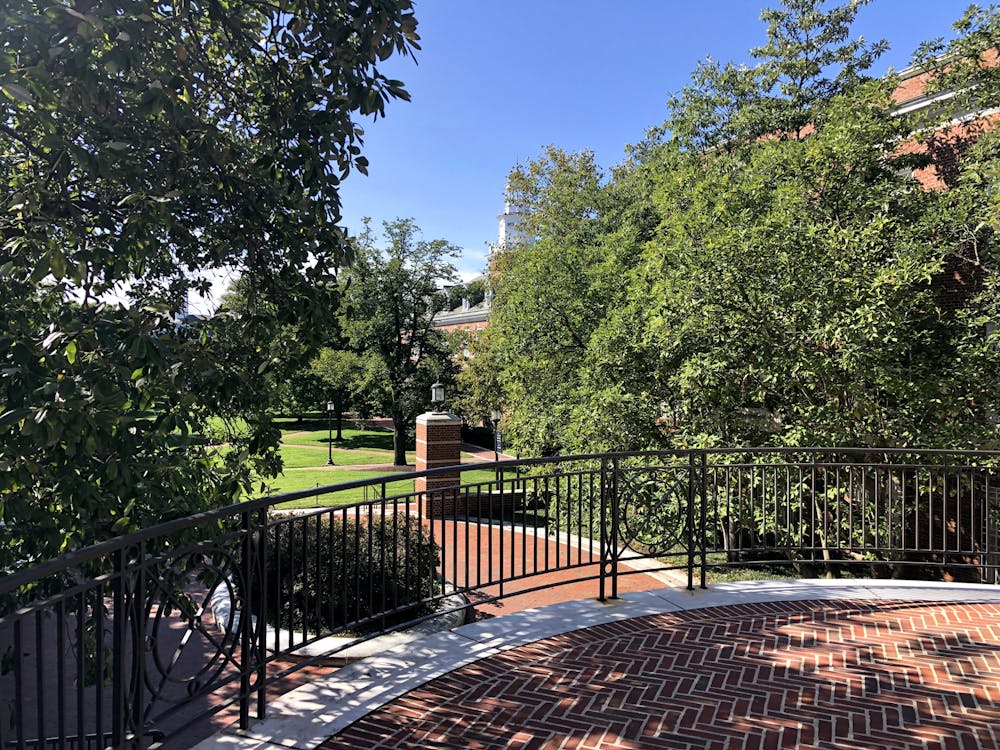The Student Government Association (SGA) held a public input forum at its weekly meeting on Oct. 20. During the forum, students asked questions about topics including the spring semester, grading and the virtual freshman experience.
While the meeting was not live-streamed on Facebook due to technical difficulties, SGA Executive President Sam Mollin stated in interview with The News-Letter that future meetings will be available in real-time. Apart from these issues, he argued that SGA has transitioned online smoothly.
“We’re doing fine. Essentially the way we operate is through meetings, and meetings can happen virtually,” he said. “It hasn’t really presented an obstacle.”
Mollin said he thought that the forum was productive, in part because SGA members work directly with University-affiliated offices and groups, so members were able to answer a range of questions and listen to student input.
“I'm proud of our decision to boost public engagement and transparency by holding this event,” he said. “Public input is valuable, and we have to treat it as such.”
He noted that while turnout was low, future public input sessions may attract more students.
“It’s just a busy time in the semester. People have midterms and a lot of them are feeling a little overwhelmed,” he said. “I'm looking forward to finding ways to do similar events in the future, especially during a less hectic part of the semester."
SGA also heard a presentation about Teach For America (TFA) from TFA Recruitment Manager Evan Adams. TFA is a nonprofit organization that works to end education inequality in America by recruiting recent college graduates to take on two-year teaching positions in low-income communities.
Adam explained that providing disadvantaged students with quality teachers and role models was the first step in changing the education system in America.
“Not all kids growing up in the United States are receiving equal access to quality education,” he said. “This is a major issue and one that we feel like putting all of our energy toward, even amidst all the things going on in our nation.”
According to Adams, the majority of the 1.3 million American students who drop out of high school every year are low-income students of color. Even for those who stay, low-income students are 2.5 times less likely to be ready for college, despite having the same potential as their peers.
To help fix this, Adams encouraged Hopkins students to join TFA as teachers.
“The students that we serve have all the potential to succeed, they just might not have access to resources or the correct personnel that can help them,” he said. “We come in as teachers in these areas not only to be a role model and see academic success, but also to be a useful part of the community.”
Adams argued that even if students did not want to pursue a career in education, they would still be making a difference and expanding their worldview by joining TFA.
“We understand that a lot of the students that we recruit aren’t going to want to spend their entire career in education, and that’s okay,” he said. “No matter what our core members go into after their two years, whether that’s law or public policy or politics or if they stay in education, we understand that we’re creating this movement of leaders for educational equity... with an understanding of how to work across lines of difference and within low-income communities.”
Mollin explained that going forward, SGA members are actively working to increase student turnout at these forums because they give SGA a lot of useful information regarding students’ concerns. SGA members hope to implement a system to encourage students to attend meetings in the future.
“We have legislation in the works to actually create an incentive system for members of the public to come to our meetings,” he said. “The legislation is still being written so the details are a little up in the air... [but] I’m really excited to see that roll out.”





